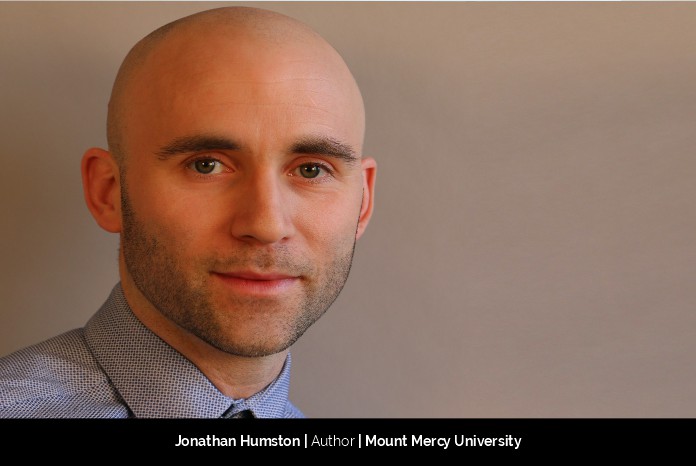A Response to ‘Online Learning Is Not the Future’: Don’t Draw Sweeping Conclusions from Spring 2020
Beyond’s Top Influential Educational Experts Making a Difference, 2020

Upon reading Peter C.
Herman’s Online Learning Is Not the Future at Inside Higher Ed,
what’s striking is not his conclusion, but the reach of his extrapolation from
his own students’ difficult experiences during a crisis to generalities on the
future of all education.
It may be true that the majority of student prefer
face-to-face classes to online. I suspect it is. But the conclusion that Herman
draws, based simply on asking his students opinions about online learning from
this semester, is that students “universally” “hate” online learning. I’m
willing to concede that this may even be true, but I don’t know because it
certainly does not follow from his arguments.
My first issue is that it is quite a leap from one
professor’s students in one major at one university during one (unprecedented)
semester to the future of higher education. And my second issue is with the
claim that his students just experienced a typical online course. I take aim at
his claim that students and faculty can assess the relative merits of online
versus face-to-face education because they have now experienced a course “both
ways.” Contrary to Herman, I do not believe that student can “compare the
digital and the analog version of their classes” because they “took the course
both ways.” I can’t stress this enough: what happened at Spring Break 2020 is
not that we all switched to online classes in the middle of the semester. What
happened is that we were all forced to move our classes online in a pinch due
to a global pandemic crisis that overturned nearly every aspect of our lives.
No one had signed up for that, no one had planned for that, no one had prepared
for that, and I’m pretty sure no one wanted that. If one believes that this
past semester was a good representation of online learning, then one reveals
that one doesn’t understand online education.
The author defends his claim that students experienced true
online learning in the second half of the spring 2020 semester because, though
rushed, many profs did a good job with the transition and put
together online classes with “all the bells and whistles.” And maybe some did
great, I’m sure many did. But his analysis is based on his own students and
their transition to online, and as he honestly reveals, it was maybe not the
best.
Herman asked his students, who are mostly English majors,
but he goes to great length to assure us they are in every other way diverse,
to “write an evaluation of their experiences with online education.” It is
unclear if the evaluation was anonymous or not, but he does let us know that he
asked the students for permission to quote their responses. We don’t know how
many students were asked, but the responses were apparently unanimous: “they
hated it.” Next comes a (hopefully cherry-picked) selection of comments: I
haven’t learned anything since we went online; it seemed too easy; the quality
of learning had gone way down; I wasn’t learning the material; we basically
have to teach ourselves. One student said that she felt like she
wasn’t getting 10 percent of the regular class. These are not typical
evaluations of typical online courses. These are his own students talking about
his own courses. For his sake, he would do well to remember that he was tasked
with a nearly impossible duty of reworking his entire curriculum and moving to
an entirely new delivery mode in a matter of a week. Oh yeah, and the global
pandemic crisis thing.
The author admits that with “in-person classes canceled,
jobs evaporating and shelter-in-place order, the structure by which many
organized their day had disappeared, leaving many students feeling lost and
adrift,” and that students are possibly taking care of loved ones and sharing
space and technology with family members. This was added almost as if it is
irrelevant contextual background. A key point that was reiterated in “every
response” is that students missed human interaction. Yes, maintaining the human
connection element, and the intermixing and intermingling of ideas and bodies,
are both essential to a positive learning environment and are harder in online
courses. “All told, moving online caused ‘a profound sense of loss.’” But is it
at all possible that the global pandemic, the terrible uncertainty, the
quarantine, the loss of social interactions and physical touch, the closings of
churches and restaurants and everything else, the upheaval of any approximation
of normalcy, and possibly even the sickness and death of loved ones, could
contribute to that profound sense of loss? Maybe the conclusion to be drawn is
not that “online is not the future” because “it’s just not what students want”,
but that this past semester was really hard on everyone.
If I wanted to, I could take my students responses to this
semester and draw the exact opposite conclusions. Evaluations I received from
students were overwhelmingly positive, with such (cherry-picked) comments as
“the online videos were very beneficial to learning the material.” Because I
was home with three little kids (oldest is age 5) during the day, I recorded
videos at night and posted them for students to watch asynchronously. One
student said, “You made very detailed videos that really helped me understand
and answered all the questions I had regarding the content.” And “if there was
something that wasn’t understood then [the professor] would make sure to
explain it over email or make a zoom or video about the topic to make sure
everyone understood.” Some students said the move to online was even better for
learning (“I feel I did better when we went online because I was able to go
back and listen to the lecture in parts where I didn’t understand”) and for
meeting with me (“When we were on campus it was sometimes hard to meet with you
to ask for help. Since going online you have been very gracious in adapting the
course to work online and with our schedules.”) I’m happy these students had a
good experience, at least in my class. But of course, these comments are purely
anecdotal. They do matter, but I would never think that, from this small sample
during a strange transition during unprecedented times, all students want
online learning and that online learning is the future.
Online learning will likely be here while we continue to
address COVID-19. Whatever happens with fall semester, even that will be
temporary. Herman agrees that, given the health risks, online is “how we need
to teach until there’s either a cure or a vaccine for COVID-19.” I’m not
hearing the calls for as many classes online as possible after the
pandemic, as Herman says many teachers fear. And even if there were calls for a
radical growth of online education, looking at the second half of the spring
2020 semester as a model is just wrong.
Interestingly, and frankly confusingly, one of the few links
in the article is to a piece from the Chronicle of Higher Education, about not
drawing conclusions from the current situation, actually titled On Not Drawing Conclusions About Online Teaching Now — or Next
Fall. We can all certainly draw lessons from it, and we must, but we would
be wise to refrain from drawing sweeping conclusions about the future of
education from Spring 2020.
About Author
Jonathan Humston is an assistant professor of chemistry at Mount Mercy University. He has taught science to middle schoolers, high schoolers, and college students in Iowa and around the world. He is interested in the intersections of science, information, education, and society. He lives with his wife and three young kids in Iowa City, Iowa.














